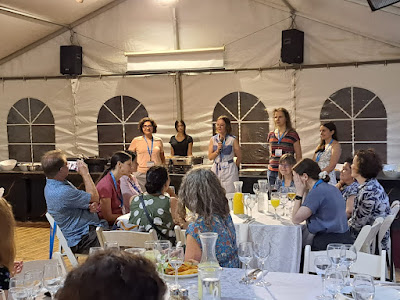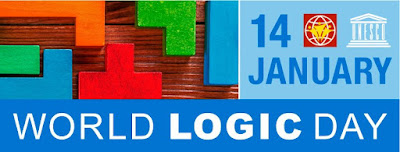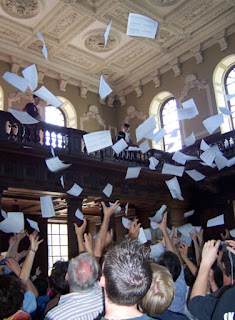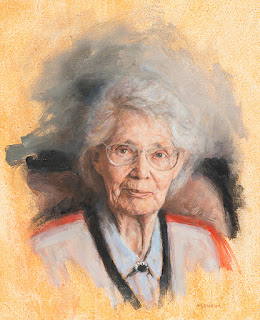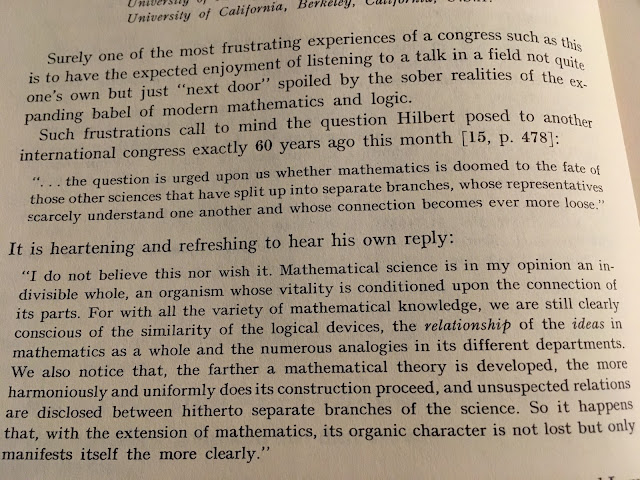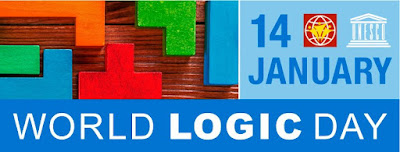Women in Logic 2025, Birmingham, UK
Dear me! I knew I was slow at writing on the blog, but I didn't realize I was this bad.
Three years have gone by since the last post. Thank goodness other people have been doing better and we had WiL 2023, WiL2024 and WiL2025 all beautifully done. The picture above is from WiL 2025 in Birmingham, 2025. Anela Lolić in the picture below, chaired the proceedings. Thank you Anela, Elaine and Tephilla for the organization of WiL2025! Thank you Daniele Nantes and Liron Cohen for being our Invited Speakers!
But the reason for this post is not to celebrate WiL2025 (maybe it should be!) but to provide a template complaint letter about Manels, written with the help of chatGPT.
There have been several series of emails/messages/texts with one or another of us complaining about manels in Logic. We discuss it, we get frustrated, we write to the people concerned and mostly we just feel that nothing good is ever happening. Of course loads of regressive steps happened recently, but we need to carry on trying to make things better for all. So here is a template--at least it saves time. Please let me know of others and of improvements.
-----------------------
UPDATE: a slightly improved and modifiable version can be found at this google doc.
Subject: Lack of Gender Diversity in [Conference Name]
Dear [Organizers/Conference Committee],
I am writing to express my concern about the lack of gender diversity in the organization and speaker lineup of [Conference Name]. The absence of women and other underrepresented groups—whether among invited speakers, tutorial presenters, panelists, session chairs, or organizers—sends a troubling message about who is considered central to the field and whose expertise is valued.
This is not just a matter of optics or tokenism. Numerous studies have shown that diverse groups produce better, more innovative research outcomes. For example, research published in Nature Human Behaviour (Nittrouer et al., 2018) found that the prevalence of all-male panels (or “manels”) is statistically unjustifiable given the number of qualified women in science. In computing, mathematics, and many adjacent disciplines, the percentage of women with advanced degrees and notable contributions is sufficient that an all-male lineup is rarely, if ever, a result of chance—it is a reflection of biased selection processes, however unintentional.
A conference that fails to include women and underrepresented groups in visible, authoritative roles not only excludes valuable perspectives—it also perpetuates structural inequalities in academia and industry. Moreover, it sends a disheartening signal to junior scholars from underrepresented groups that their participation is neither welcomed nor expected.
I urge you to take concrete steps to ensure greater inclusivity and equity in future events. This includes, but is not limited to:
-
Actively seeking out qualified women and gender-diverse experts for keynote, tutorial, and panel roles.
-
Making the selection process transparent and accountable.
-
Engaging with diversity guidelines and pledges (e.g., the “No Manels” pledge many scholars have adopted).
-
Including diversity goals as a criterion in funding and sponsorship decisions.
I appreciate the effort that goes into organizing academic events, and I am confident that more equitable and inclusive planning is both achievable and necessary. I hope to see future iterations of [Conference Name] reflect the full breadth and richness of our field.
Sincerely,
[Your Name]
[Your Affiliation, if applicable]
[Optional: Contact Information]




